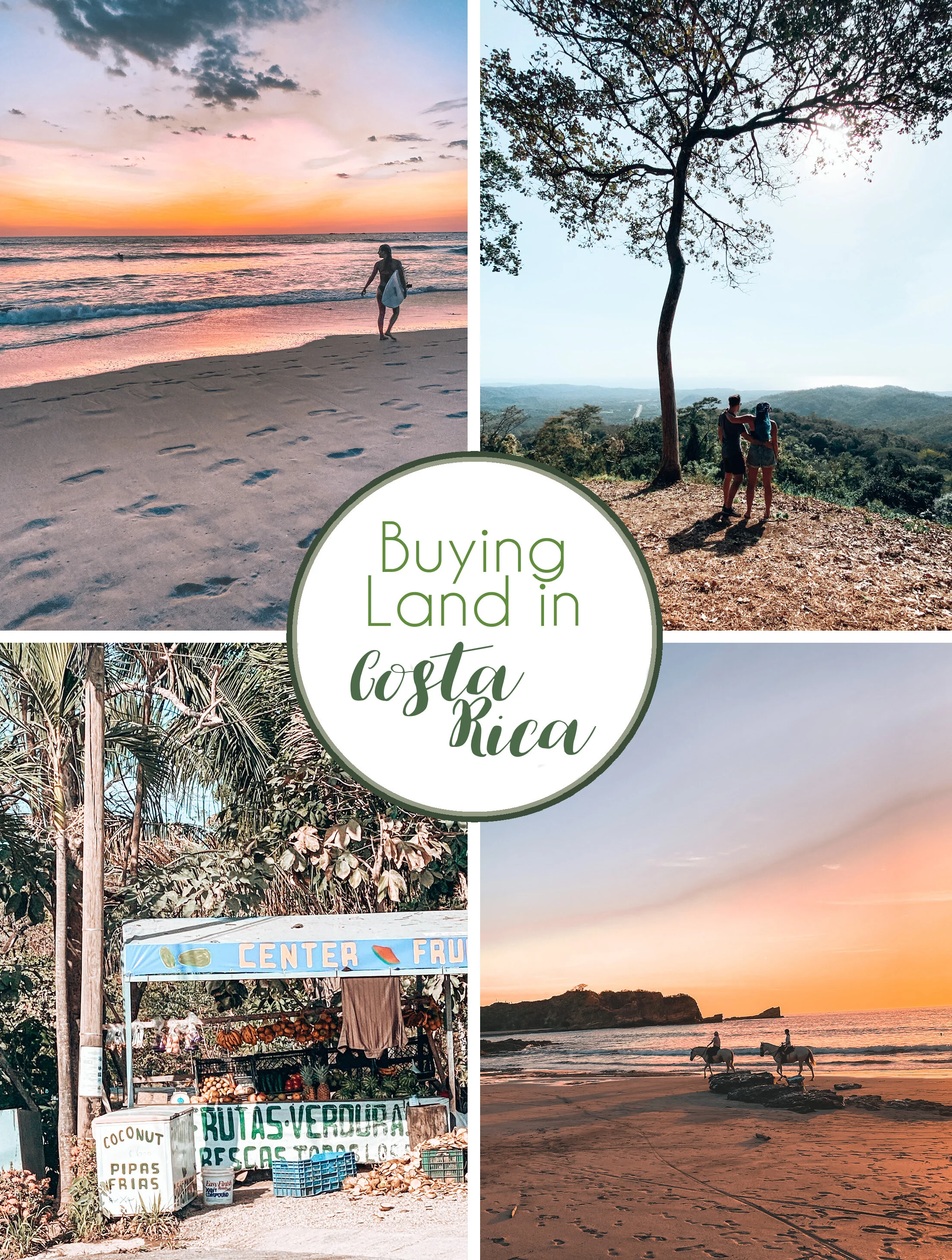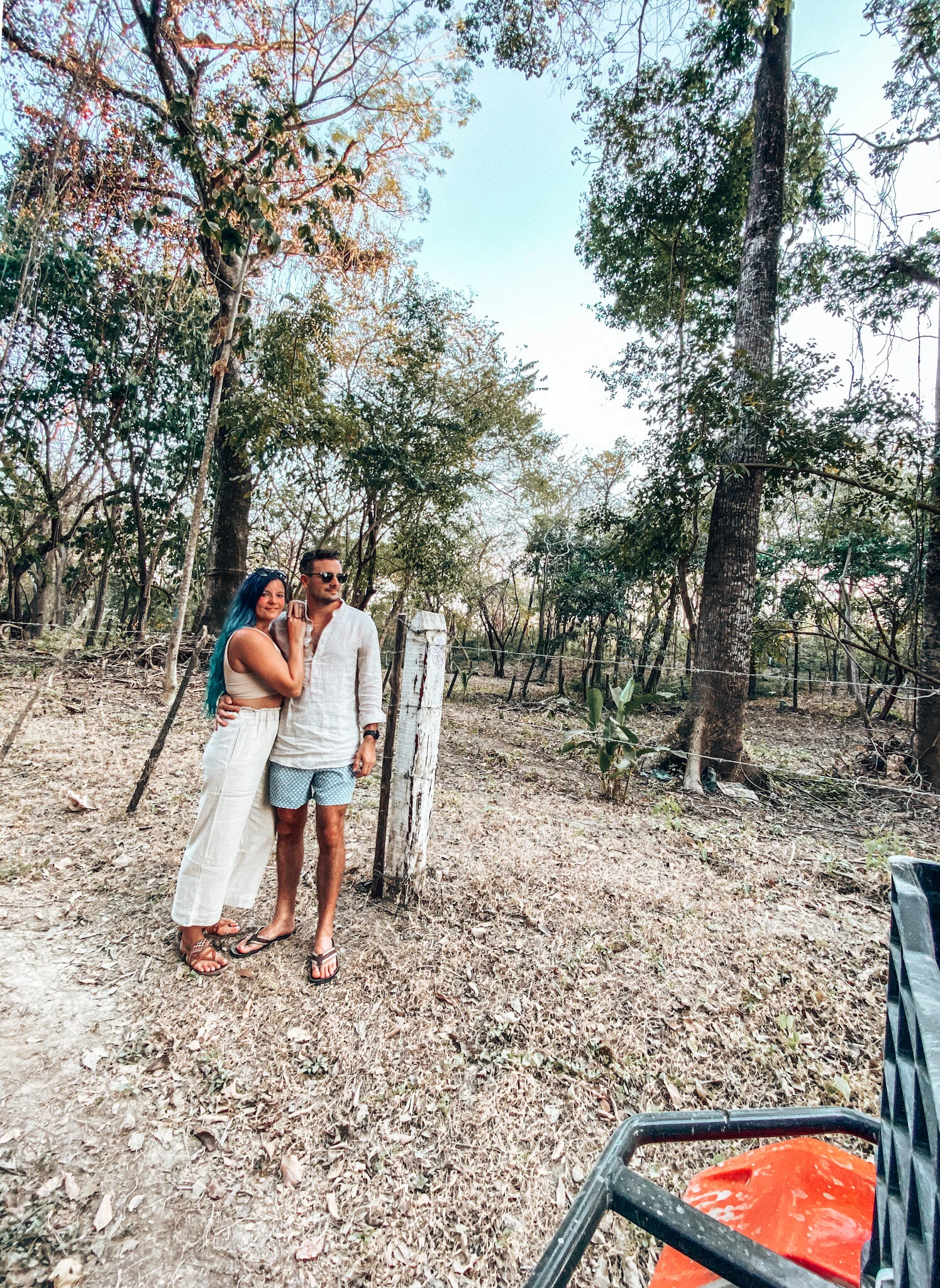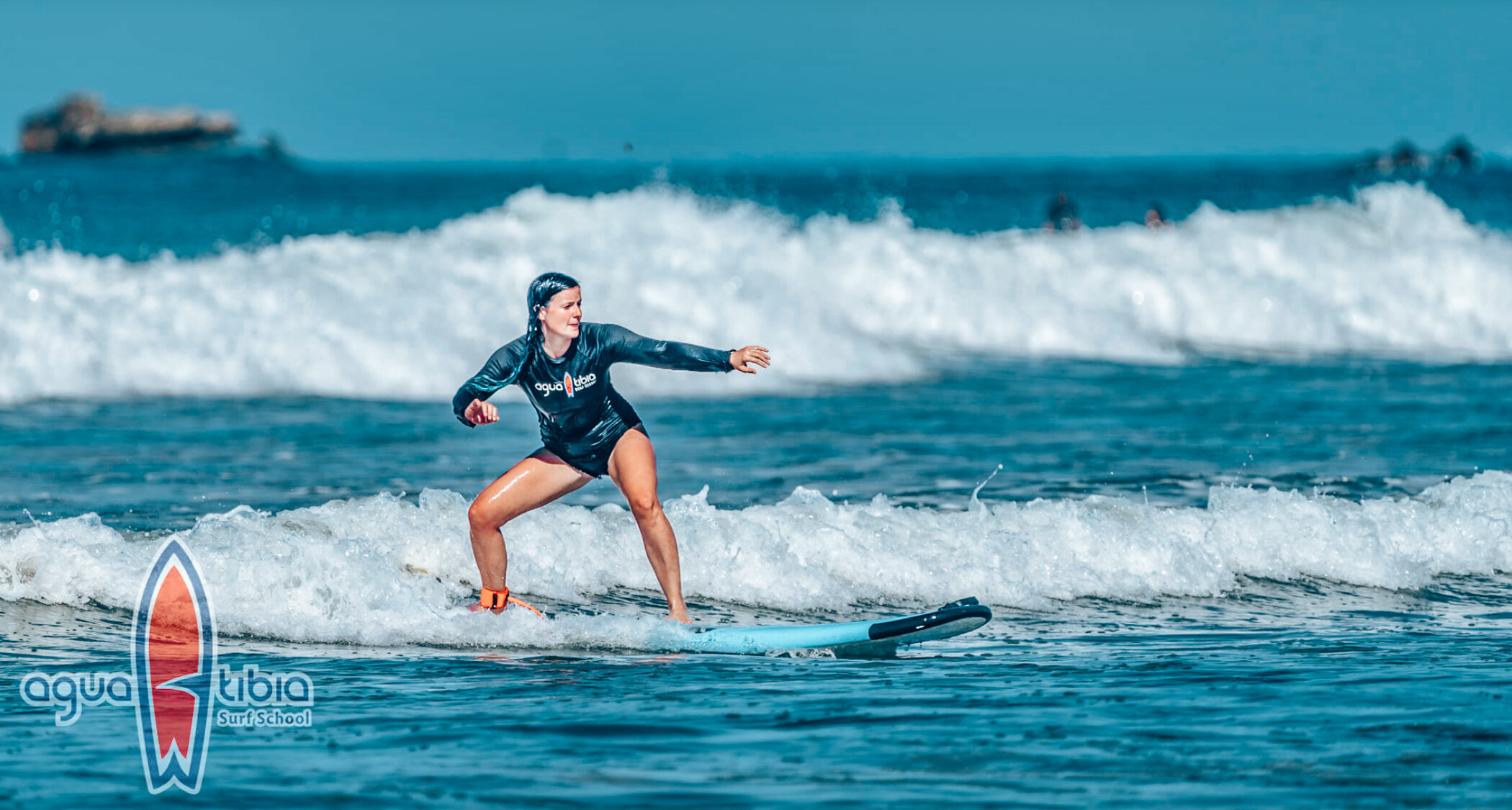Buying Land in Costa Rica | First Steps
** This information is based on our experiences through this process in Playa Pelada, Guanacaste in 2021
Us - glowing with excitement at the first property we put an offer in on! (We went through 3 before making our down payment on the 4th)
So, you have decided to take the leap and buy property in Costa Rica.. PURA VIDA!!!!! You have focused in on a region of the country, have been looking at properties online and you are ready to start really getting deeper into the process..
First and foremost - find an honest real-estate agent with google-able credentials/reviews that you vibe well with. Even if you have purchased land elsewhere, it is beyond important to work alongside someone who knows the area along with the local laws and will genuinely keep your best interests in the forefront. We met with a few in person and are so happy with our experience with Etienne at Surfing Nosara. He has gone way beyond the expected to help us in our buying process!
A local agent will be able to take you around to view available properties and learn a bit more about your preferences in person. **We found that with the current market, 9 out of 10 of the properties we loved online before visiting were no longer available 2 weeks later and they don’t even have time to get properties uploaded before someone snatches them up.
You will also want to hire an attorney to assist in the purchase process. A local attorney will have access to all of the information needed from the municipalities and make sure everything is in line with the government. They will take care of your due diligence (same as US) and make sure you are good to go.
What to look for in your property
We all have our boxes to check - budget, size, location but once you check enough of your boxes, there are some other very critical elements to consider before you make that offer.
Below are some important questions to ask if you have plans to build on your property. All of these items will be a part of your due diligence after you make a deposit as well but it is ideal to know before you even get going so you don’t waste your time.
Zoned Use Make sure to check with the municipality to see if the property is zoned for residential building. Even if there are other houses around, that doesn’t necessarily mean the same for this particular property. If you are trying to close a deal quickly, the process to re-zone if available can take 6 months ++.
Clear Title We found out pretty quickly that this is a common issue with the properties we initially made offers on. Make sure that the land you are buying has a clear title with all taxes up to date and no liens!
Water Something that is constantly changing is access to water now that certain areas in Costa Rica are experiencing massive amounts of expansion. Inquire with the local ASADA (water company) to ensure you will have access to water. Without it, no permits can be processed for construction.
Roads Ensure that there is actual legal access for you to get to the land. Many properties we saw were near a main road with other houses in between however had no access of their own - An expense and process we knew nothing about.
Property Plans Make sure that you receive a croquis with the full dimensions listed on a plan that is registered with the municipality. These plans will also include protected areas, water sources and other elements that are important when considering building. During due diligence, you can hire a third party surveyor to ensure you are getting what you are signing up for. Setbacks are important in Costa Rica so ensure you have that in hand so you know where you can and cannot build on your property.
Power When looking at potential properties, make sure to take notice if there are electrical wires close by. While you can have electric run, it can be very time consuming (‘mañana” which could mean tomorrow or in a few months)
You can also invest in solar power - it is Costa Rica after all.
Internet We all need it these days. Most areas have wired, cable internet with some more populated areas switching to fiber optic.
Area & Growth Know what is going on in the area you are looking at. Has it peaked without room for expansion? Is there a lot of new construction? Are you close to the amenities that are important to you?
What is different from buying in the US?
The actual acquisition of land is quite similar to the process of buying land or a house in the US with a few exceptions…
You will be paying all cash. It is very difficult and time consuming to get financing in Costa Rica for land acquisition. You can make your transfers into an escrow account from most banks or they will provide you an intermediary account to wire through if you are in a smaller bank.
You may choose to buy as a corporation rather than your personal. It is definitely better for you when it comes to taxes (this is something your attorney can setup at closing).
Make sure to get everything in writing or take detailed notes on phone calls when you cannot be visiting in person. Even with some Spanish knowledge, things can still get lost in translation. After calls, make sure to confirm any details that may be unclear to you via email so you have it in writing.
TICO TIME!!! We are very used to instant communication and replies these days - this does not always happen in Costa Rica. Be patient, this is a huge and exciting time but keep in mind, this is something you will appreciate once you are living in CR!
Order of Events
You have found the right property! Have your agent submit a Letter of Intent to the seller or their agent in order to agree on the sale price and general terms. You may get a counter offer.. standard stuff.
Once the offer is approved, your attorney in Costa Rica will execute the formal sale and purchase agreement. This is your contract and is legally binding so be sure to read and re-read before signing and returning. We found the contract to be VERY similar to our house in Savannah with a few caveats pertaining to water and road access.
Transfer your deposit into an escrow account. For our purposes, this was 10% which seems standard.
Due Diligence begins. This will be the full legal search into the property to make sure the land is free and clear of any legal issues, liens and that it has a clear title. This is also when you should be having any surveys of the land, soil tests and other inspections completed.
Closing! This will take place with a Costa Rican notary public who will then switch over the property to you, the new owner!! **You do not have to be present for closing if you elect a power of attorney in CR.
Property will be declared with the correct municipality for property taxes - you can do this our your attorney can handle.
Remember, it is unlikely you will get the first property you fall in love with given the current market. What is meant to be will come through for you if you can stay positive and patient during this process.








